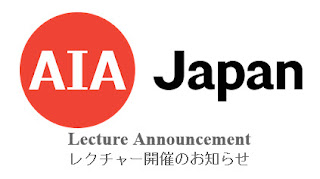Next week, Lake|Flato and Texas Tech University will be presenting for AIA Japan on biophilic design and environmentally-responsible behaviors which involves one of our higher-ed projects: Universities at Shady Grove Biomedical Sciences & Engineering Education Facility.
Presentation summary
The challenge of global climate change necessitates interdisciplinary problem solving. In the built environment sector, the pursuit of sustainability requires not only constructing and maintaining a green building, but ensuring that we consider how best to support the green behaviors of occupants within these buildings. On the university campus, green buildings are especially positioned to serve as places of environmental education and in turn, occupant awareness of green building features supports environmentally responsible behaviors (ERBs).
This project explores how occupants interpret the sustainability of two LEED certified buildings at the Universities at Shady Grove in the U.S. state of Maryland. The design of the first, the LEED Platinum Biomedical Sciences and Engineering Education Facility by Lake|Flato Architects & Cooper Carry, incorporated biophilic intent, while that of the second, a LEED Gold building, did not. In other words, the LEED Platinum building looks like a sustainable building, whereas the sustainability of the LEED Gold building could easily be missed. This mixed-methods study involves an online survey of building occupants, photograph-based methods, and follow-up interviews with a subset of occupants. The outcomes of this work contribute theoretically to our understanding of how to support and promote ERBs within green buildings. The integration of nature and natural analogues into the built environment through biophilic design promotes both physical and psychological well-being. This project aims to lay the foundation for discussing the role of biophilic design in promoting both personal and planetary well-being.
Details
When: Saturday, July
16, 2022 10:00 - 12:00, JST
(9:30
- 10:00 is a test session)
Online
Platform:
Zoom Webinar (live broadcasting / on-demand)
Registration
Fee:
Free
Capacity: 1,000 (First come
first served basis applies)
Organizer: AIA Japan
CES:
2HSW
approved
Registration
Link:https://us02web.zoom.us/webinar/register/WN_TfxaLrUTQE2hhPnwZQrk4w
Or Visit aiajapan.org for more information.
Update:
Recording link: https://www.aiajapan.org/lakeflato
Presenters
Erin M. Hamilton, Ph.D. is an Assistant Professor of Interior Design at Texas Tech University. In the fall, she will transition to join the faculty of Interior Architecture at the University of Wisconsin in Madison, WI. Her research explores the social and behavioral dimensions of green buildings, with a focus on how sustainable buildings may support the cultivation of environmentally responsible behaviors and overall wellbeing. She teaches in both the undergraduate and graduate programs and enjoys the creativity of crafting a good research design.
Anne Herndon, AIA, LEED AP – Design Staff, Project Director – Lake | Flato
As project director in Lake|Flato’s higher education studio and leader of the firm’s employee-driven research program, Anne champions the application of scientific knowledge to the design process. Her commitment to understanding relationships between architecture, people and planet helps in creating environments that support learning and encourage interaction while promoting human and planetary well-being.
For BIM Chapters updates, follow @DanStine_MN on Twitter or connect on LinkedIn
Lighting design professionals: check out my Revit & ElumTools training https://bit.ly/3NJjhCV


